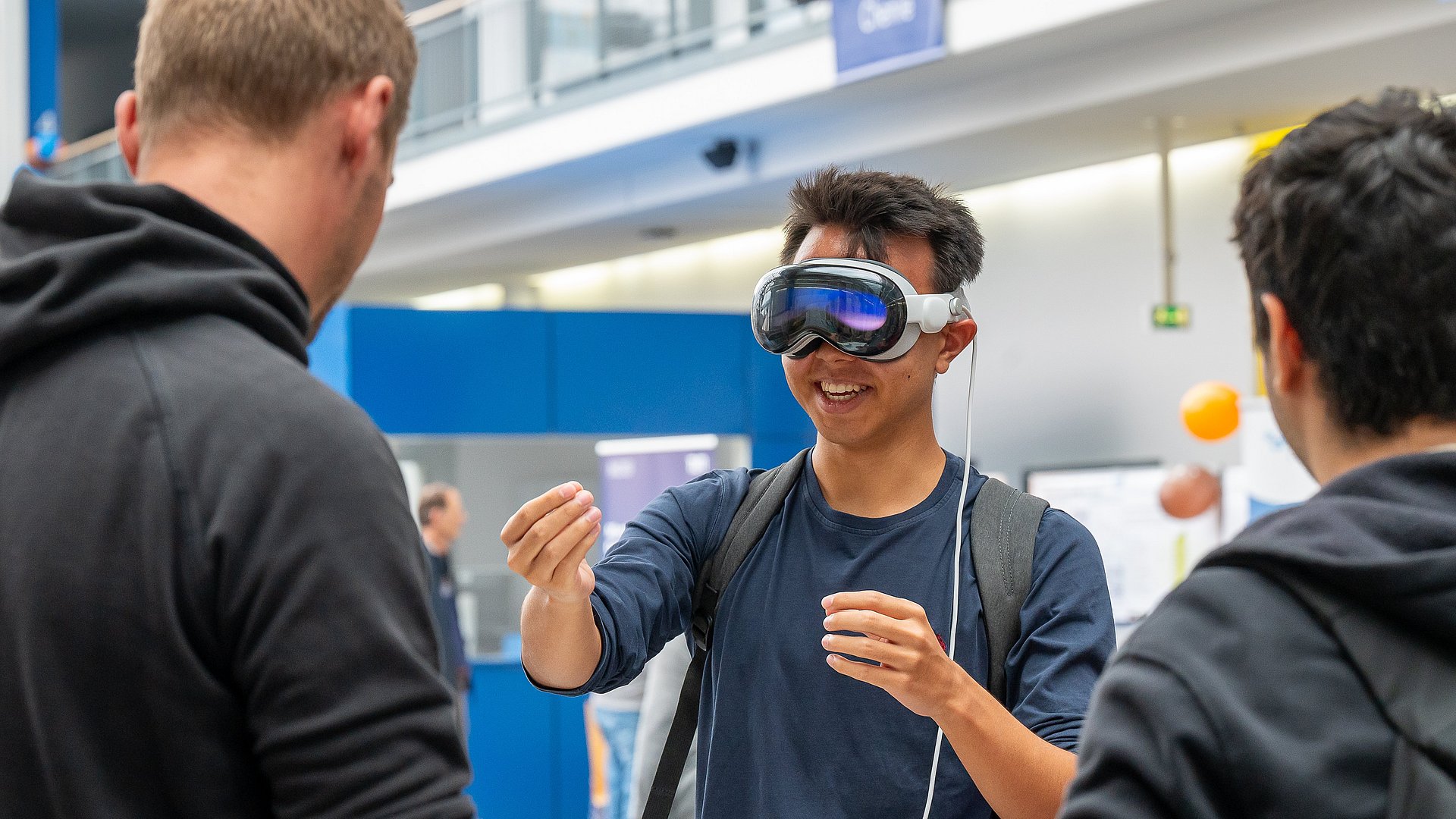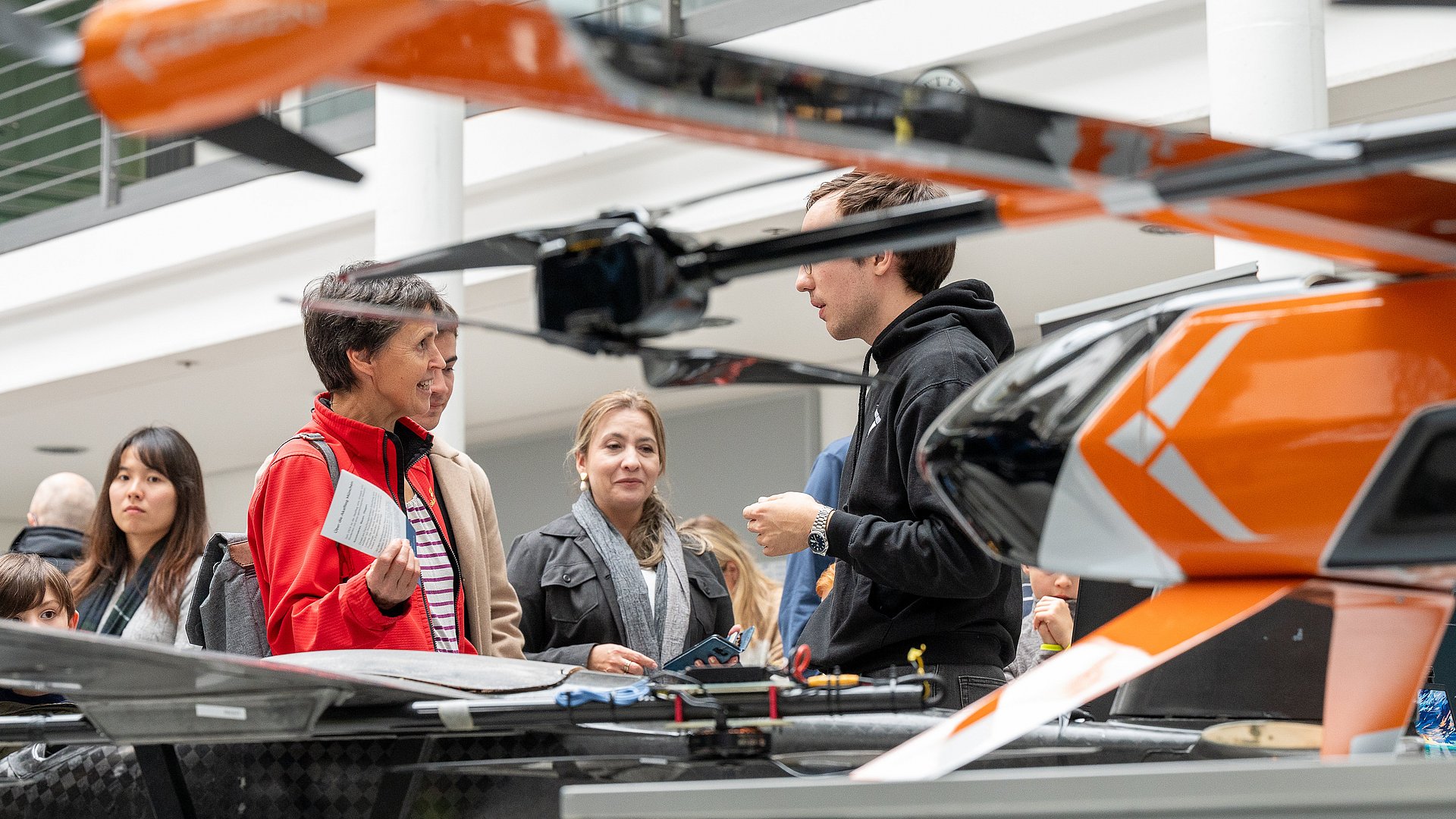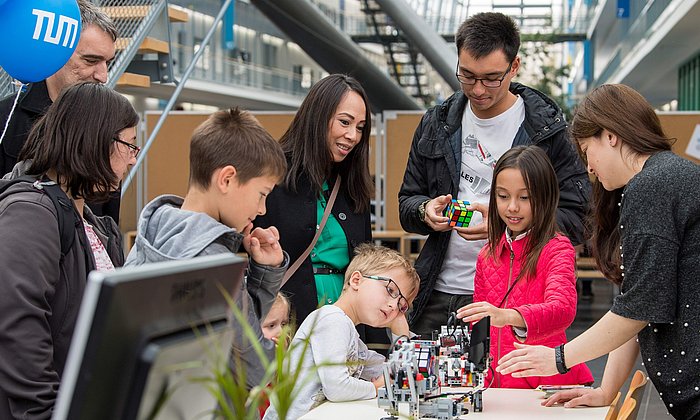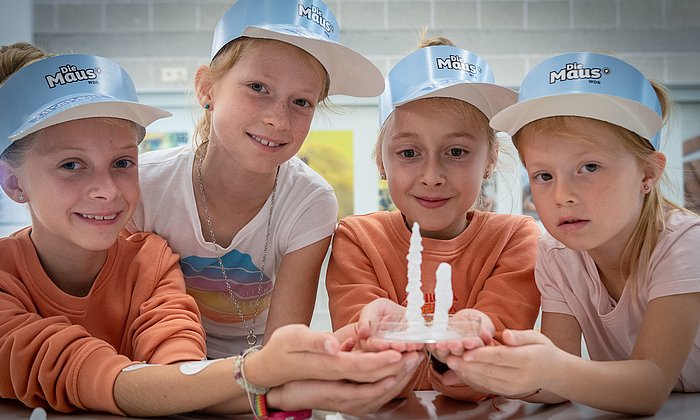Huge interest in the Garching Research Campus
Open House attracts thousands of visitors

Prof. Dr. Jeanne Rubner, TUM Vice President for Public Engagement, was delighted: ‘It is so wonderful to see how much interest there is in science. The many families with small children and the many young people I saw all over the campus alone show that we make an important contribution to society with our research.’
Numerous scientific institutions, companies and organisations based on the Garching Research Campus participated in the event with a varied program for all age groups.
Exciting highlights from the science slam and experimental lectures
Magnetoelectric nanoparticles for Frankenstein, artificial intelligence for determining uncertainties and dogs to promote health in schools. With exciting stories and plenty of entertainment, researchers gave insights into their work at the Science Slam. In the end, the winner was decided by applause.
The guests were also entertained by the experimental lectures. The large lecture hall in the main building of the TUM School of Engineering and Design was packed to capacity. In addition to many aha-moments from the everyday world of physics and chemistry - including controlled explosions - there was plenty of humour.
Meanwhile, EDGAR was doing its rounds across the campus outside. From a distance, it looks like a regular van. But the many cameras and high-tech sensors on the roof give it away. It transported visitors completely autonomously - i.e., without a human driver's intervention.

Numerous hands-on activities for children
The guided tours of the research reactor on the campus were booked out immediately. Usually strictly shielded, the large-scale research facility opened its doors - not only for adults but also for 7 to 13-year-olds as part of the simultaneous action day of the program with the mouse. They could look into the reactor pool, measure the natural radiation of bananas and Brazilian nuts, observe the traces of particles flying past in the cloud chamber, and visit the reactor operators in the control room.
Even cult presenter Christoph Biemann, the face of the ‘Sendung mit der Maus’ TV program for decades, travelled from Cologne to Garching with a WDR camera team to see the great activities for children for himself. The children explored several stations together with the mouse - for example at the Munich Institute of Integrated Materials, Energy and Process Engineering (MEP), where they drilled for warm water and investigated how geothermal energy works.
Young researchers could tinker, puzzle and play, for example, in the ix-Quadrat maths exhibition and the iTüpferl computer science research workshop. There were also numerous hands-on stations at the Munich Institute of Biomedical Engineering (MIBE). There, the children helped the scientists to catch the magician-thief with dancing lightning, a high-speed camera, glowing cucumbers, and a lot of humor. They also folded their own microscopes, scanned chocolate eggs with X-rays , and put on lab coats and gloves to take pictures.

Music invited visitors to linger
The Campus-Chor Garching, the Old's Cool BigBand and the TUM Dixieland Combo provided the musical accompaniment for the day. Spread across the campus, they invited visitors to take a break and listen.
Technical University of Munich
Corporate Communications Center
- Ulrich Meyer, Julia Rinner
- presse@tum.de
- Teamwebsite



